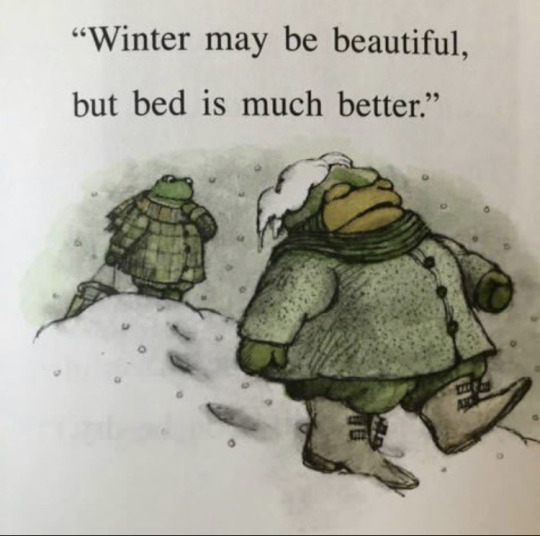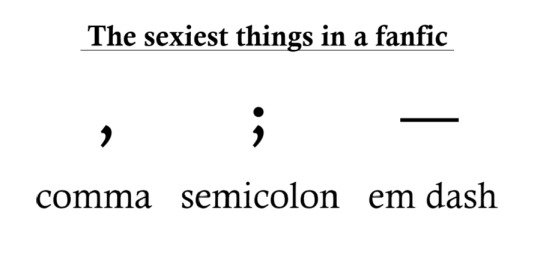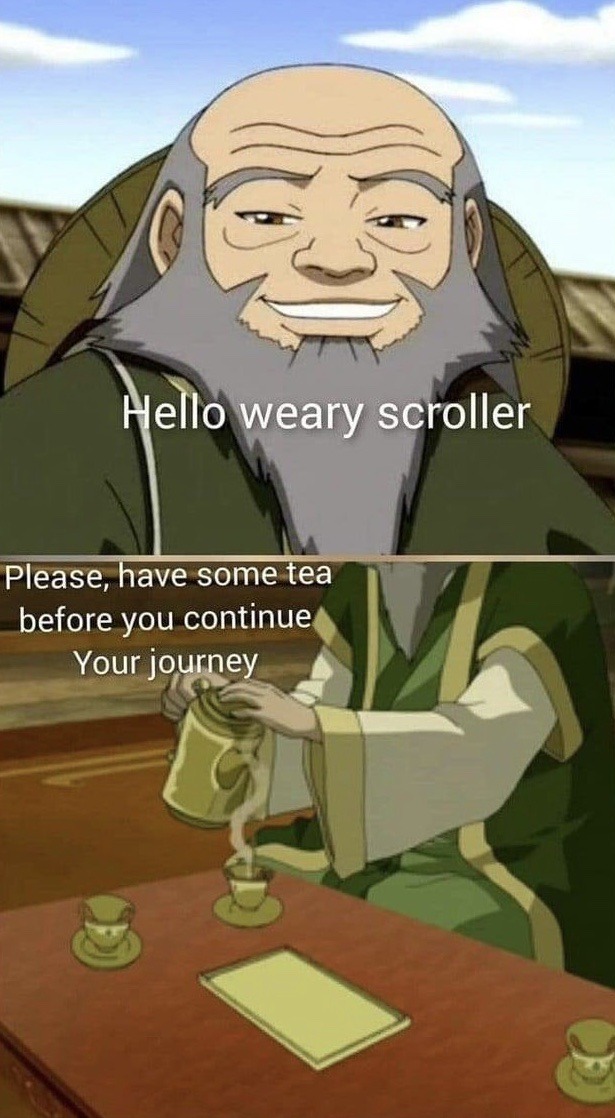middle-aged fat queer, former bookseller and current library staffer, hobbyist writer and crafter, fandom old. i miss reading, so i'm making time for it in my life again.
Don't wanna be here? Send us removal request.
Text
yes my favorite colors are the warm orange of the windows of a house u see on a walk at night and also the deep blue of the night around it
132K notes
·
View notes
Text

#tbh bed is better in winter BECAUSE it's winter outside the bed#frog and toad#arnold lobel#illustration
27K notes
·
View notes
Text

In my humble opinion
27K notes
·
View notes
Text
Glorious Bodies: Trans Theology and Renaissance Literature by Colby Gordon

A prehistory of transness that recovers early modern theological resources for trans lifeworlds.
In this striking contribution to trans history, Colby Gordon challenges the prevailing assumption that trans life is a byproduct of recent medical innovation by locating a cultural imaginary of transition in the religious writing of the English Renaissance. Marking a major intervention in early modern gender studies, Glorious Bodies insists that transition happened, both socially and surgically, hundreds of years before the nineteenth-century advent of sexology. Pairing literary texts by Shakespeare, Webster, Donne, and Milton with a broad range of primary sources, Gordon examines the religious tropes available to early modern subjects for imagining how gender could change. From George Herbert’s invaginated Jesus and Milton’s gestational Adam to the ungendered “glorious body” of the resurrection, early modern theology offers a rich conceptual reservoir of trans imagery.
In uncovering early modern trans theology, Glorious Bodies mounts a critique of the broad consensus that secularism is a necessary precondition for trans life, while also combating contemporary transphobia and the right-wing Christian culture war seeking to criminalize transition. Developing a rehabilitative account of theology’s value for positing trans lifeworlds, this book leverages premodern religion to imagine a postsecular transness in the present.
41 notes
·
View notes
Text

Munich’s Legal Library, located in the city’s dramatic neo-Gothic New Town Hall, is one of the most beautiful libraries in Germany.
29 notes
·
View notes
Text

Silence of the Forest (1885) by Arnold Böcklin
976 notes
·
View notes
Text
The Last Bookstore on Earth

The Last Bookstore on Earth by Lily Braun-Arnold
woohoo, the first book i have finished in the new year! i had so many good intentions to read the physical books awaiting me all around my bed, or the ones i was gifted over the holidays, but i ended up taking a break from books for most of december and january to read tons of fanfiction instead. so it's nice to be back, with a very competent first novel from a pretty young author!
this book scratched a number of itches for me—even in the worst timeline that we're living, and kind of especially in this worst timeline, i really enjoy stories about people surviving the end of the world. this one has the added bonus of girls falling in love, and a bookstore! two of my favorite things. i was very charmed by the narrative voice of Liz, the pov character, who just wants to hunker down with all the books and make whatever kind of quiet, contained life she can make for herself. and i was equally charmed by Maeve, her tough guy attitude and her useful baby butch fix-it skills! the way these two clashed—until they didn't—was fun, and predictable in a pleasant way rather than an irritating way. and of course, the whole thing made me so nostalgic for my bookselling days!!
that said, i finished the book feeling like i hadn't gotten enough of anything. i wanted to be even more in love with their love, and even more devastated by their backstories and their pain. i wanted to feel even more tense about what would happen when the second world-ending Storm inevitably blew through, or how they would get out of the various scrapes and dangers they got into. as with so many things, this is a matter of taste! i'm the kind of reader who wants to wail and gnash my teeth, and i like being surprised by twists and outcomes and obstacles. thinking back to how i've sobbed over other apocalyptic books (there are so many, but the first YA that comes to my mind is Life As We Knew It), this book didn't quite achieve those high highs and low lows that i look for, or the level of tension that makes those extremes work in a story like this. but i think for some folks that will make it more appealing than something devastating.
so it depends on what you're looking for, but either way, i'll be keeping an eye out for more by Braun-Arnold! i think the potential is there for her to write something that destroys me.
the deets
how i read it: another e-galley from NetGalley, i'm determined to stay ahead of the release dates this year!
try this if you: dig disaster/apocalypse stories (was anyone else chemically altered by that scene in Dante's Peak with the boiling acid lake?), love a pairing of opposites (they have such a classic ship feel to me), or have ever worked in a bookstore (or daydreamed about living there).
some lines i really liked: i feel you Liz
Girlboss! you might say. You earn that dough! In response, I roll my eyes. In response I say: I will die in this godforsaken bookstore, and there will be no one to remove my rotting body from the floor. I will die surrounded by Poe, Nietzsche, and Shusterman, wedged halfway between Young Adult and Classics, and one day some alien archaeologist will find my body and study it like Pompeii.
---
But sometimes, the memory is worth the pain. It's like watching the saddest episode of your favorite TV show again, even though you know how badly it's going to hurt.
#books and reading#booklr#bookblr#book reviews#book recs#queer YA#the last bookstore on earth#lily braun-arnold
2 notes
·
View notes
Text

Ophelia (1910) by John William Waterhouse
608 notes
·
View notes
Text


A selection of "ornaments" marketed to printers by American Type Founders Co. in Inland Printer v.24 (1899:Oct.-1900:Mar.). From the text: "The ornaments here shown were collected by Will Bradley, the artist, many of them being from medieval sources, and designed by him with especial reference to the requirements of modern typography." Full text here.
783 notes
·
View notes
Text
Creator Sign-Ups Are Open!!!
It's time to sign up for FTH 2025!
Before you sign up, some reading material (if you're a returning creator, please give them another look, as we have changed a few things!)
FTH FAQ
What to expect on the signup form
A brief overview of this year's changes
Which fandoms are on this year's list (but of course you can write in any fandoms you like)
FTH 2025 Calendar
List of Supported Nonprofits
We also wrote a little self-care reminder. The short version: we want to acknowledge that this year will be hard for many people for many reasons, and that stress can take a toll on creativity. Keep your own well-being in mind when planning your FTH offerings, and only offer what you really want and feel able to do. We'd truly rather have fewer sign-ups than have FTH deadlines cause you excessive stress at the end of the year.
The FTH Auction Sign-Up Form is here!
The Fan Crafts Bazaar Sign-Up Info is here!
1K notes
·
View notes
Text

Brouwersgracht, Amsterdam - Carl Grossberg , 1925
German , 1894-1940
Oil on canvas , 70 x 90 cm.
264 notes
·
View notes
Text
actual griddlehark kiss, when?




condensed to 4 pages because that's my limit
1K notes
·
View notes
Text
What can early museums teach us about modern literacy? 💭
Whitney Barlow Robles' latest piece for JSTOR Daily, "The Age of Wonder Meets the Age of Information," takes us back to the cabinets of curiosities from the 16th-18th centuries–perhaps original examples of information overload.
These "cabinets" were rooms outfitted with items like narwhal tusks, ivory carvings, and even (alleged) unicorn horns. Like today's average social media experience, collections like these overwhelmed the senses and raised questions about power, knowledge, and representation.
In this piece, Robles explores how these early museums can help students develop digital and visual literacy today, offering lessons in interdisciplinary thinking and grappling with colonial legacies.
(P.S.: JSTOR's Artstor collection features stunning images of these cabinets!)
262 notes
·
View notes





